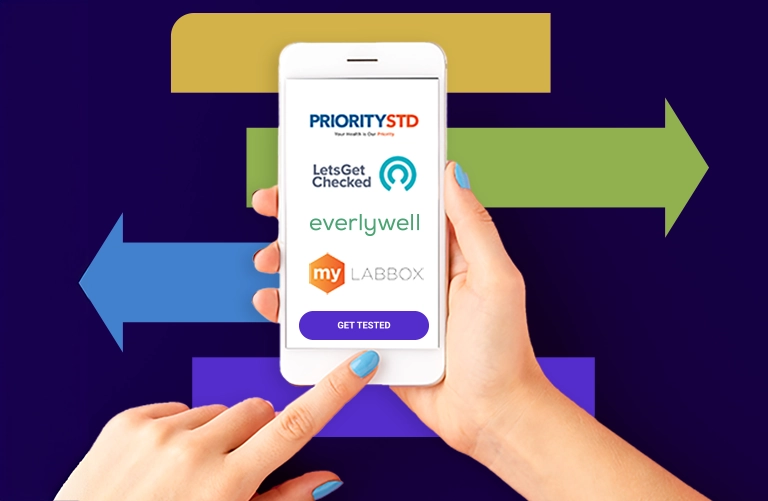Understanding Gonorrhea: Symptoms, Testing, & Treatment
Understanding Gonorrhea: Symptoms, Testing, & Treatment
Gonorrhea is a common STD that can affect anyone who is sexually active, although is most common in those age 15 – 24 years old. The STD often comes without any obvious symptoms, so regular testing is essential in keeping you and your partners safe. Learn more about gonorrhea, symptoms it may cause, its effects on the body, testing procedures, and available treatment options.
Get Tested for Gonorrhea
ABOUT GONORRHEA
What Is Gonorrhea And How Does It Affect Your Body?
ABOUT GONORRHEA
What Is Gonorrhea And How Does It Affect Your Body?
Gonorrhea is a bacterial infection that is spread by having vaginal, anal, or oral sex with an infected partner. If a pregnant individual has gonorrhea, the STD can also be spread to a baby during childbirth.
For most people, gonorrhea will not present any symptoms, but if they do, they are often mild and mistaken for a simple bladder or vaginal infection. Symptoms of gonorrhea include:
- Pain or burning sensation during urination
- Increased vaginal discharge
- Bleeding between periods
- A white, yellow, or green discharge from the penis
- Painful or swollen testicles
- Anal discharge, itching, soreness, or bleeding
- Painful bowel movements
Regardless of the presence of symptoms, untreated gonorrhea can lead to serious, permanent health problems. Women may develop pelvic inflammatory disease (PID) that can cause blockage of the fallopian tubes by scar tissue, ectopic pregnancy, infertility, and long-term pelvic and abdominal pain. Men may experience pain in the tubes attached to the testicles that can lead to infertility. Untreated gonorrhea can also spread to the blood and joints, which can be life-threatening, and it can increase your chances of contracting HIV.
Above information source: Gonorrhea – CDC Basic Fact Sheet
GONORRHEA TESTING INFORMATION
What To Know About Gonorrhea Testing
Testing for gonorrhea is easy. A urine test is the most common method. If visiting a physician, you may receive a physical exam that includes a pelvic example, fluid sample from the cervix or penis, or throat or anal culture. The lab will then analyze your sample to look for the presence of the bacteria.
In general, test results are returned within 1 to 3 days from the time the lab receives your sample. If a culture test was administered, results may take longer, but your doctor will discuss what to expect during your testing visit.
Source: MyHealth Alberta, Gonorrhea and Chlamydia: About These Tests
Gonorrhea can be cured with the right treatment. As with any antibiotic medication, it’s important to take all of the medication provided as directed. Stopping medication too soon or not taking as instructed could result in the infection becoming more resistant to antibiotics, meaning it will be more difficult to treat.
Some drug-resistant strains of gonorrhea are becoming more prevalent, so if your symptoms continue for more than a few days after completing treatment, contact your doctor right away.
You should refrain from any sexual activity until seven days after medication is completed and symptoms are no longer present.
Even after treatment, it is still possible to get gonorrhea again, so it’s important to practice safe sex. Those who have been treated for gonorrhea should be retested around three months after treatment was completed to ensure the infection has cleared.
- Anyone who is sexually active
- Sexually active women under 25 years old
- Gay and bisexual men
- Women 25 years or older who have new or multiple sex partners, or a partner with an STD
- Those who are pregnant
Source: Gonorrhea – CDC Basic Fact Sheet